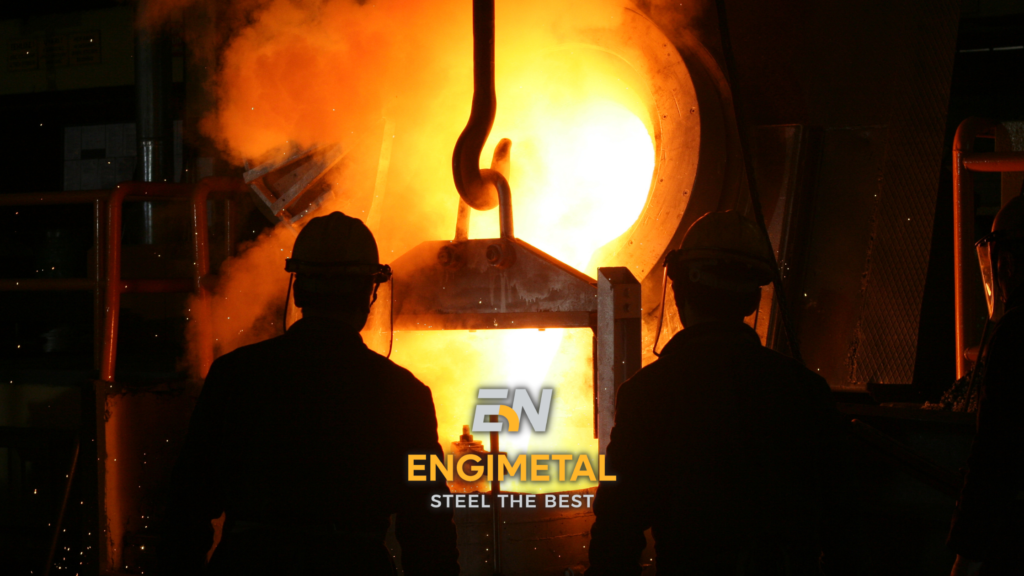
Castings, due to the functions they perform, must be made with extreme precision. What shapes them and affects the individual elements are special forms made of molding sands. One of the most commonly used foundry sands are bentonite sands, the features and application of which will be discussed in the following text.
In the past, we wrote for you, among others, about furan (furful) sands used in foundry, which is another dynamically developing branch of the foundry market.
Molding sands are materials used to produce molds and foundry cores. They have become the basic starting material in foundry, allowing to systematize, accelerate and increase the quality of production processes.
The basic molding materials are sand and clay (with right balance of water content) and other molding additives, selected in appropriate proportions and processed in order to obtain the properties necessary to make specific molds and castings in production conditions.
In the foundry industry, several types of masses are used for molds and foundry cores. These are among others:
In highly industrialized countries, 60 - 85% of iron alloy castings are made in bentonite-bonded molds. One of the types of molding clays that bind the matrix (mostly molding quartz sand 1K➗4K) are montmorillonite clays, i.e. bentonites. These are the clays that are widely used in the production of foundry sands for small and medium castings, especially when it comes to mechanized and automated foundries.
Bentonites are popular due to their properties, allowing for their wide application. The characteristics of bentonites include, among others:
Thanks to this, bentonite masses are:
According to the popular view, bentonite masses are not particularly ecological. However, this view is not entirely in line with reality. Why?
Apart from the matrix (quartz sand) and the binder (e.g. bentonites), special additives are used to create foundry sands. For a long time, the commonly used additive was coal dust, from which, under the influence of temperature, pyrolysis carbon is released. This, in turn, creates a layer that is not wetted by the liquid metal on the matrix grains, which allows to obtain a lower surface roughness and prevent mass scorching. In this process, however, harmful substances are emitted. And those substances, in turn, come from the decomposition of coal dust, and their composition depends on the temperature of the casting alloy.
However, it has been proven that if the addition of coal dust from sands with bentonite were completely eliminated, they would become the most ecological foundry sands in the whole industry. After all, they are great for refreshing and reusing, and their efficiency eliminates the need for mass storage tanks. What's more, the used molding sand with bentonite is easy to manage outside the foundry.
For this reason, substitutes such as bentonite mass containing carbon carriers are often used instead of coal dust.
An interesting expense was developed by scientists from the AGH Center for Technology Transfer in Krakow. As they say:
The subject of the invention is a bentonite-bonded molding sand with a carbon additive in the form of shungite, intended for use in the foundry industry, for the production of molds and cores, which are then used for the production of high-quality cast iron castings. The essence of the innovativeness of the obtained mass is the fulfillment of the properties desired by foundries: obtaining a full-fledged casting, and at the same time the entire technological process, including the high-temperature casting process, is environmentally friendly.
acc. dr. hab. eng. Artur Bobrowski, this discovery has a positive impact not only on the environment and work safety, but also on the continuity of casting production, elimination of defects, reduction of energy expenditure for finishing treatment and minimization of losses.
The disadvantage of bentonite sands is certainly the fact that the temperature poured into the mold cavity of the liquid casting alloy leads to the deactivation of the bentonite, which reduces the binding capacity and increases the friability of the sand. Bentonite has a relatively low heat resistance, which means it can decompose at high temperatures. When casting high-temperature metals such as steel or cast iron, this can lead to defects in the castings.
In the case of sands with coal dust, there is also the aforementioned release of pollutants in the form of PAHs (polycyclic aromatic hydrogens) into the atmosphere.
What's more, bentonite masses are characterized by a high moisture content. Bentonite is a hygroscopic material, which means that it easily absorbs moisture from the air. High moisture content in the bentonite mass can lead to the formation of surface defects on castings, such as blisters or inclusions.
It is also worth remembering that bentonite sands have low mechanical strength, which means that they can be deformed during the casting molding process.
Not without reason, bentonite sands are one of the most frequently used molding sands in cast iron foundry. After all, they are efficient and economical, and the molds made with them are precise and solid. Although the ecological aspect definitely left much to be desired for a long time, currently the aim is to completely neutralize the side effects of using these molding sands.
